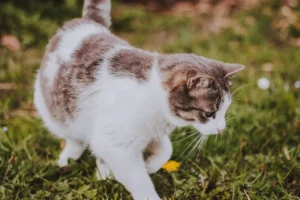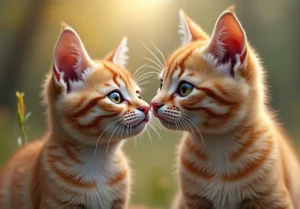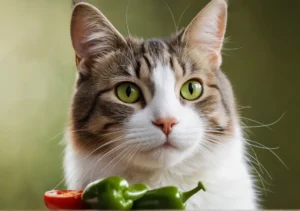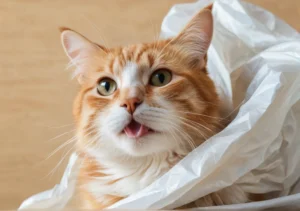Cats and fish seem to have an undeniable attraction, but have you ever wondered why? Let’s delve into the intriguing reasons behind why cats are so drawn to fish.
Without further ado, let’s explore the fascinating world of feline fascination with fish.
Natural Instincts
Cats have an innate hunting instinct that draws them to fish like a magnet. This instinct can be traced back to their ancestral roots as skilled predators in the wild. In the wild, cats would often hunt fish as a primary food source, honing their fishing skills over generations. Even though our domestic feline friends may not need to hunt for survival, this instinctual drive remains strong within them.
Sensory Appeal
The smell, texture, and taste of fish create a sensory explosion for our feline companions, making it an irresistible treat. The strong odor of fish triggers a primal response in cats, activating their taste buds and making their whiskers twitch with excitement. The slippery texture of fish adds to the appeal, as it mimics the feeling of live prey. Additionally, the rich taste of fish is a sensory delight for cats, satisfying their natural cravings for meat.
Extra tip: If you want to indulge your cat’s love for fish in a healthier way, consider offering cooked fish without any added seasoning or oils. This way, your feline friend can enjoy the sensory experience without any potential harm from added ingredients.
Nutritional Benefits
Fish is like a superfood for cats! Not only is it packed with essential omega-3 fatty acids that promote healthy skin and a shiny coat, but it also serves as a high-quality protein source that helps cats maintain strong muscles. Adding fish to your feline friend’s diet can boost their overall health and well-being.
But hey, here’s the catch (pun intended): always ensure the fish is cooked thoroughly to eliminate any potential harmful bacteria or parasites that could upset your cat’s stomach. And remember, moderation is key when feeding fish to your furry companion to prevent potential health issues from excessive consumption.
Here are some top-notch fish options that your cat may fancy: – Salmon – Tuna – Whitefish
Incorporating these fish varieties into your cat’s diet can provide a delicious and nutritious meal that they will surely adore.
Playtime and Entertainment
Why are cats so drawn to fish-themed toys and games? Well, it’s all about satisfying their natural instincts and keeping them mentally sharp and physically active. Fish-themed toys and interactive games stimulate your cat’s curiosity and playfulness, providing hours of entertainment and engagement.
From realistic fish-shaped toys that mimic the movements of real fish to interactive fishing rod games that allow your cat to “hunt” their prey, these fish-inspired activities tap into your cat’s primal hunting instincts, keeping them engaged and entertained.
So, why not treat your feline friend to a fish-themed toy or game today? It’s a surefire way to keep them happy, healthy, and entertained for hours on end. Just remember to rotate their toys regularly to keep things fresh and exciting!
Myth Busting
Contrary to popular belief, cats are not inherently attracted to fish because of their natural diet. While fish may be a tasty treat for your feline friend, it is not a necessary part of their nutrition. The idea of cats loving fish likely stems from cartoons and media portrayals rather than biological reasons. Cats are actually obligate carnivores, meaning their diet should primarily consist of meat.
Alternative Options
If you’re looking for safe and healthy alternatives to feeding fish to your cat, there are plenty of options available. Consider incorporating high-quality commercial cat food that is specifically formulated to meet your cat’s nutritional needs. You can also offer cooked lean meats or specially made cat treats that mimic the taste of fish without the potential risks associated with raw fish consumption.
Other alternatives include:
– Offering canned tuna or salmon cat food
– Providing freeze-dried fish treats in moderation
– Incorporating omega-3 supplements into your cat’s diet
By exploring these alternative options, you can ensure that your cat’s dietary requirements are met without resorting to feeding them actual fish. Remember, moderation is key when it comes to incorporating new foods into your cat’s diet to prevent any potential health issues.
Historical Significance
Cats and fish have shared a curious relationship throughout history, often intertwined in ancient folklore and mythology. In ancient Egypt, cats were revered for their hunting abilities, while fish held symbolic importance in various rituals. This connection is still evident today in popular culture, where cats are often depicted as sneaky fish hunters in cartoons and movies. The allure of fish to cats may stem from this historical connection, where the chase and capture of fish symbolize a primal instinct for many felines. Through centuries of shared stories and representations, cats’ attraction to fish has become a timeless trend that continues to captivate us.
Fun Facts
Let’s dive into some fun facts about cats and their fascination with fish: – Whisker Sensitivity: Cats’ whiskers are so sensitive that they can detect even the slightest movement in the water, making fish an irresistible target for their hunting instincts. – Purring Predators: Despite their cute appearance, cats are natural hunters with a killer instinct, making fish a perfect prey for their predatory skills. – The Fishy Effect: The shiny, wiggling movements of fish can trigger a cat’s hunting drive, activating their predatory behavior and making them eager to catch their aquatic prey. – Fish Tales: Did you know that the ancient Japanese believed that cats had the ability to predict earthquakes and would become agitated by the movements of fish? This superstition added to the mystique of cats and their relationship with fish. – Cat Conundrum: While cats are attracted to fish, it’s essential to remember that not all felines enjoy eating fish. Some cats may have allergies to fish or simply prefer other protein sources in their diet. It’s always best to consult with your veterinarian about the ideal diet for your feline friend.
Alex, a passionate animal lover, has experience in training and understanding animal behavior. As a proud pet parent to two dogs and three cats, he founded AnimalReport.net to share insights from animal experts and expand his knowledge of the animal kingdom.




